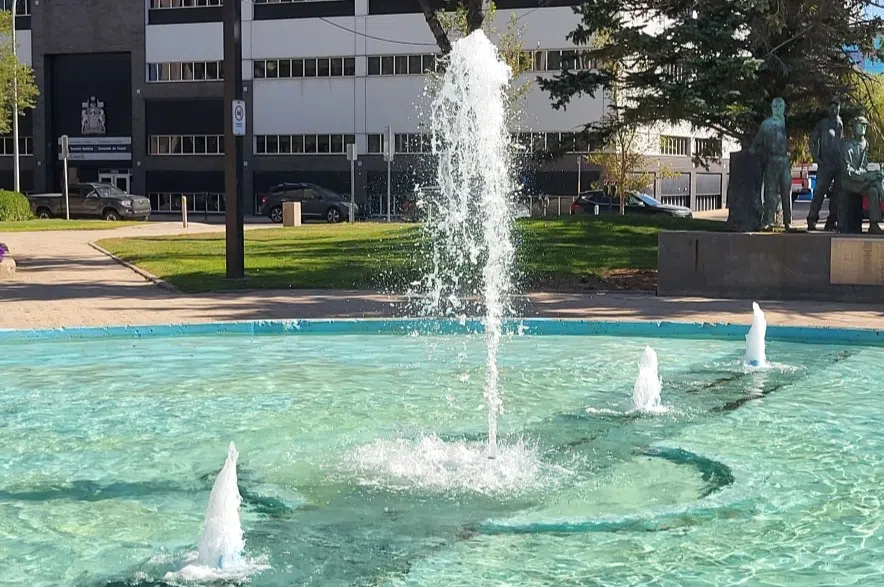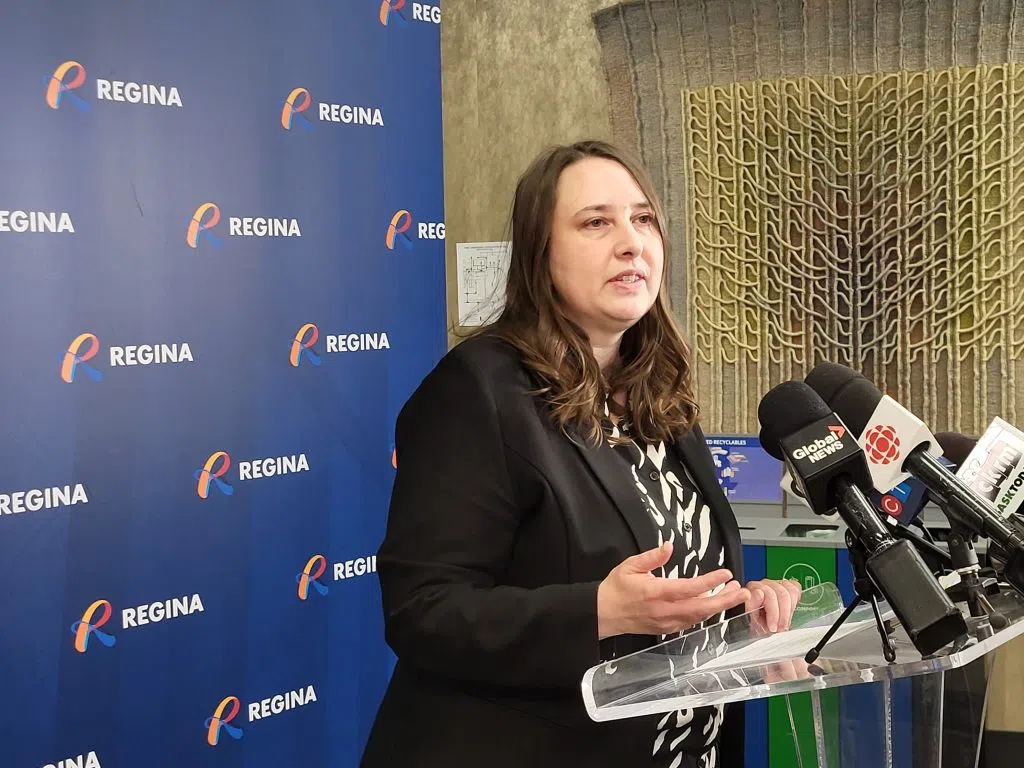Residents of Regina and Moose Jaw can resume their regular water use.
Both cities lifted their voluntary water conservation advisories on Friday morning.
Read more:
- Two people, including self-proclaimed ‘Queen of Canada,’ facing charges after RCMP raid in Richmound
- Carney pledges $370M in incentives for canola sector
- ‘In this together’: Historian reflects on Saskatchewan’s 120th birthday
“Residents may now return to regular water usage, and the City will resume standard operations, including unidirectional water main flushing,” the City of Moose Jaw said in a statement.
Residents were asked to conserve water following a power outage at the Buffalo Pound Water Treatment Plant on Tuesday night, which led to a reduction in the water supply to customers.
City of Regina usage down 10 per cent during advisory
Carolyn Kalim, Regina’s director of water, waste and environment, couldn’t say exactly what caused the power outage when speaking to media on Friday morning.
“The power outage essentially caused an issue with a valve that resulted in some flooding, and that was the cause of the shutdown of the plant, where the pumps weren’t operational,” she explained.
As the water treatment plant continues to go through upgrades, Kalim said more voluntary water restrictions could be possible.
“We have old parts of the plant that still need to operate while also commissioning new parts of the plant,” she said. “We hope… not to be in a position to implement more water restrictions, but of course, it is a very critical time, and so if we need to, that is something that we would proceed with.
“Our goal is always to stay away from the mandatory restrictions.”
She said water usage was down around 10 per cent and thanked residents for doing their part. The city’s reservoirs are also filled back to regular levels.
This was the second voluntary water conservation request made by the City of Regina this year, according to Kalim, following another request that came in May during upgrades at the treatment plant.
Prior to that, Kalim said the city hadn’t requested a water use reduction since 2015.
She said the city’s emergency water wells were in use to supply clean drinking water, though she said users might notice some discoloration.
“Any changes in discoloration in the water is really due to well water entering the system,” she said. “Our well water has different minerals in it, and it has a different appearance and sometimes odor for residents, but it remains safe to drink. It’s tested regularly whenever we are using our wells.”
Buffalo Pound Water Treatment Plant rebuild still under construction
During a June media tour of the still-under-construction facility, Ryan Johnson, president and CEO of the Buffalo Pound Water Treatment Corporation, said all operators are dedicated to ensuring water quality is a top priority.
He said if operators “see something they don’t like, they will make sure to tell. They’re very vocal.”
And they’ve had to be, Johnson noted, because the list of things that have gone wrong since they began re-designing the plant in 2016 is a long one. From unreliable contractors to hiccups in switching over from old systems to new, from struggling with sludge management to having to incorporate new fluoride systems for Regina, operators have worked hard to ensure the water flows.
“This isn’t just engineering; this is public health. And really, a safe, reliable water supply is the core of public health,” Johnson said.
The treatment plant was built in the ’50s, when technology was vastly different.
By 2022, when the $325 million renewal project began, the plant was on its last legs, with an antiquated filter system nearing uselessness. The systems also left operators at the mercy of things like algal blooms or big temperature swings in Buffalo Pound Lake, resulting in regular outbreaks of bad taste and odour, even though the water was still drinkable.
The renewal project will ensure the plant has everything it needs to continue delivering water to over 270,000 people in Regina and Moose Jaw, and will create a more consistent, pleasant taste. New technologies include the dissolved air flotation system, which is a fundamental shake-up.
Construction on the operating systems should be completed this month, even though the work was originally supposed to be completed by last September.
Overall work should be finished by next June. After that, operators can get used to the new plant and hopefully shed some of the anxiety of the last few years’ disruptions.
—with files from 980 CJME’s Daniel Reech and Discover Moose Jaw












